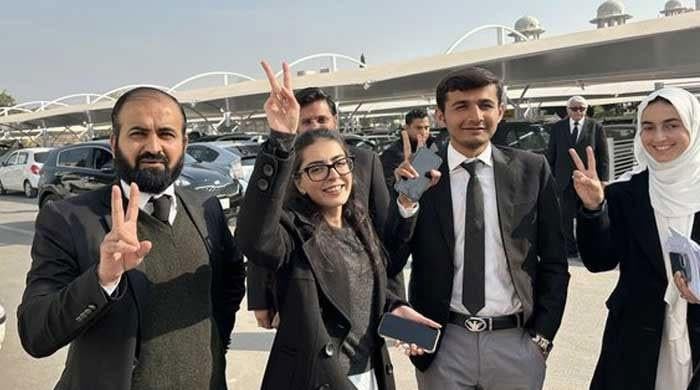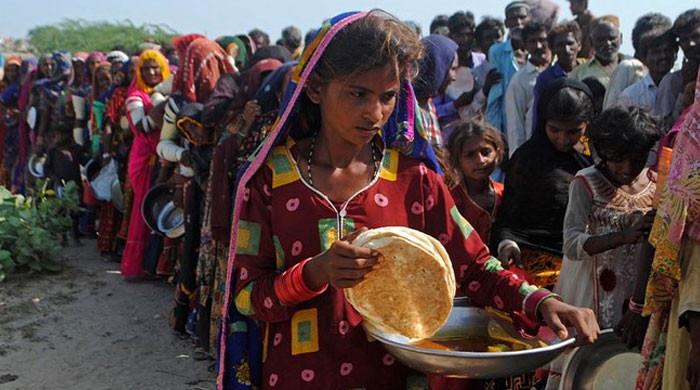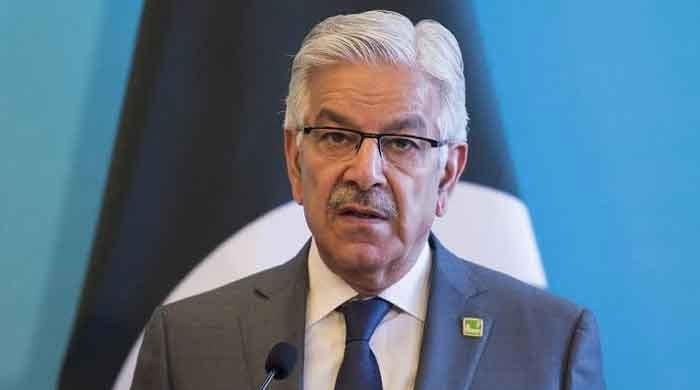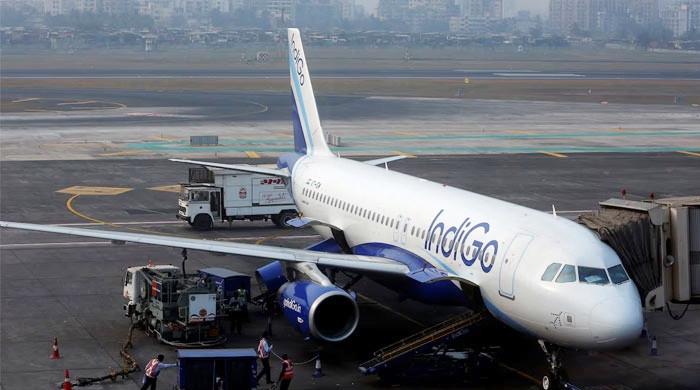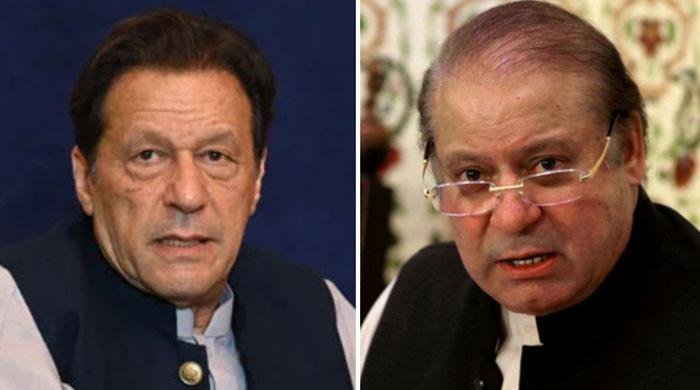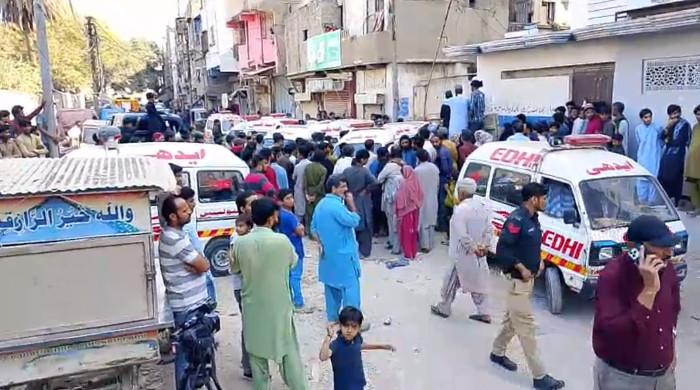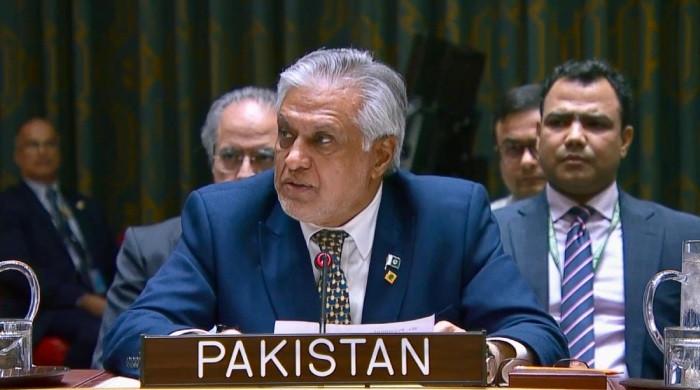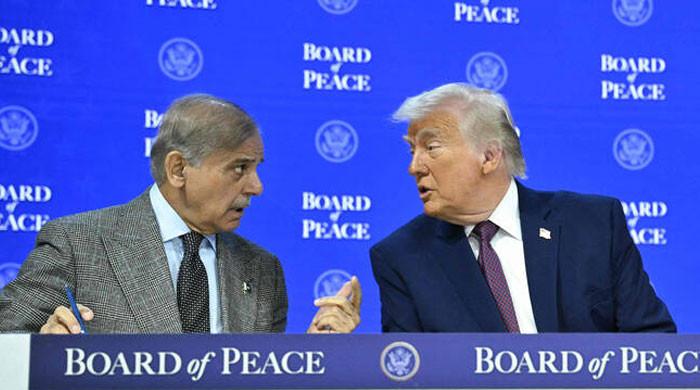‘Not PTI leaders but some other people partook in May 9 riots’, Imran Khan tells JIT
PTI chairman once again changed his stance on the May 9 events, according to sources
August 27, 2023
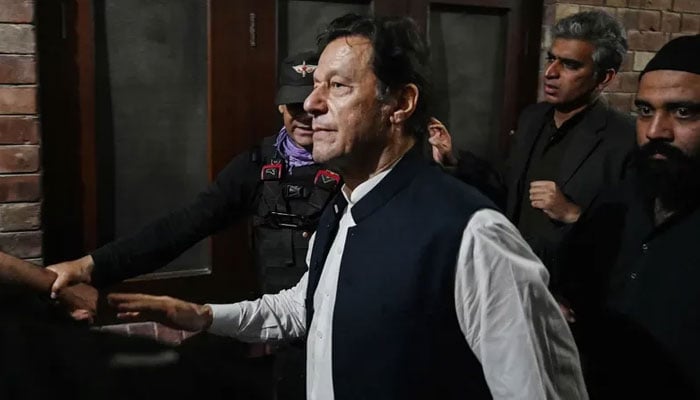
- JIT sources reveal Imran Khan changed his stance once again.
- PTI chief tells JIT he did not provoke anyone as he was arrested.
- Team says they have evidence which shows Khan inciting violence.
LAHORE: Pakistan Tehreek-e-Insaf (PTI) Chairman Imran Khan told the joint investigation team (JIT) that his party leaders were not involved in the May 9 riots but some other people participated in the event, sources told Geo News on Sunday.
The JIT, which comprises a five-member high-ranking team, is probing the May 9 rampage across the country after permission granted by an anti-terrorism court (ATC).
The JIT visited the Attock jail to question the PTI chief — who is currently serving a three-year sentence after being convicted in the Toshakhana case — in different cases, for which he has been booked under sedition and anti-terror laws.
According to the well-placed sources, the PTI chairman once again changed his stance on the May 9 events. The entire JIT including Deputy Inspector General (DIG) Investigation Imran Kishore questioned Khan.
During the interrogation, the team told the former premier — who was ousted from office after a no-confidence motion against him in April 2022 — that there was evidence against him of inciting violence on May 9.
"I was arrested and did not provoke anyone by calling them," he replied.
The JIT said they have video clips showing protesters taking Imran Khan's name.
"I did not incite anyone, everyone went to the cantonment area on their own. My party members were not part of the riots, they were some other people," he told the JIT.
A day earlier, the JIT interrogated Imran Khan on the addition of offences under sections 121 (waging or attempting to wage war or abetting waging of war against Pakistan), 131 (abetting mutiny, or attempting to seduce a soldier, sailor or airman from his duty) and 146 (rioting) mentioned in the first information report (FIR).
Other offences, under which Khan was grilled, include sections 120, 120-A, 120-B, 121-A, 505, 153, 153-A, 153-B and 107 of PPC for his alleged involvement in attacks on Askari Tower, Shadman police station, and torching of Pakistan Muslim League-Nawaz's (PML-N) offices in Lahore's Model Town and Jinnah House, which also serves as the corps commander’s residence.
The May 9 riots were triggered almost across the country after the deposed prime minister's arrest in the £190 million settlement case. Hundreds of PTI workers and senior leaders were put behind bars for their involvement in violence and attacks on military installations.
During the protests, the miscreants targeted the civil and military installations including — Jinnah House and the General Headquarters (GHQ) in Rawalpindi. The military termed May 9 "Black Day" and decided to try the protesters under the Army Act.
To probe Khan for the violence that ensued, the police had added the provisions on August 18 as per the case diary after which it contacted the anti-terrorism court seeking permission to investigate the PTI chief.
The court's Judge Ejaz Ahmad Buttar, consequently, issued an order at the request of the police.




